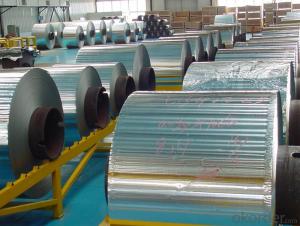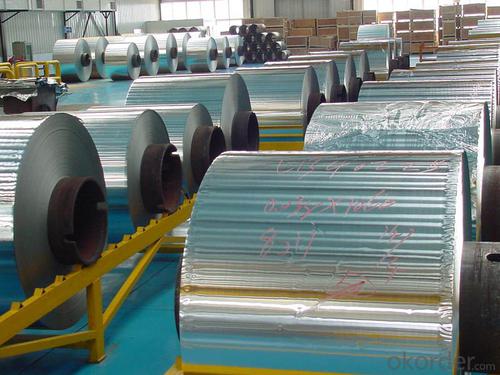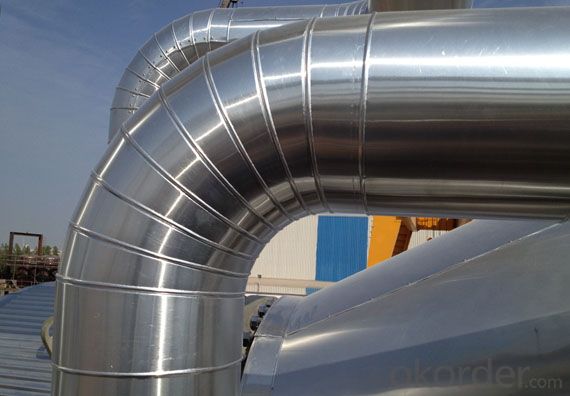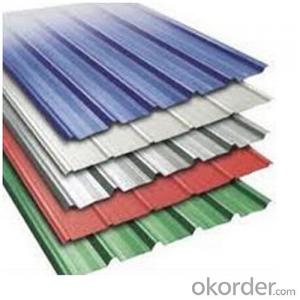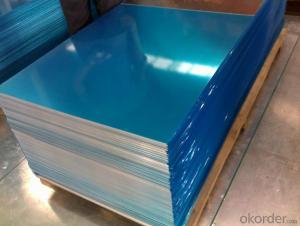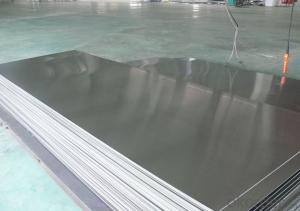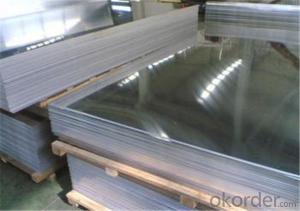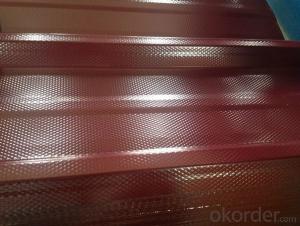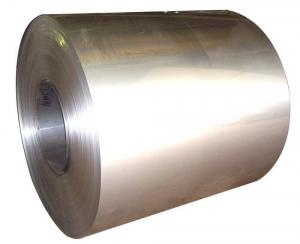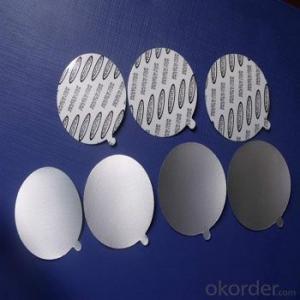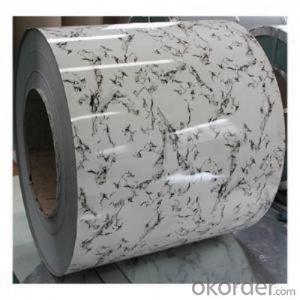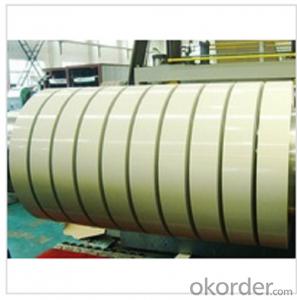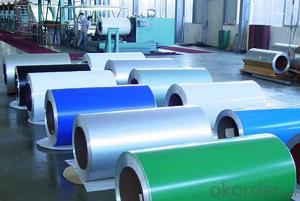Aluminum Sheets for Roofing - Aluminum Coils 3003 for Insulation and Cladding of Oil & Gas Pipes
- Loading Port:
- Shanghai
- Payment Terms:
- TT OR LC
- Min Order Qty:
- 25 m.t.
- Supply Capability:
- 20000 m.t./month
OKorder Service Pledge
OKorder Financial Service
You Might Also Like
1.Structure of Aluminum Coils 3003 For Cladding Description
Aluminum Coils 3003 has great ductility, heat conductivity, anti-corrosion and moisture resistance properties.
Aluminum Coils 3003 is widely used for insulation and cladding of oil & gas pipes.
2.Main Features of the Aluminum Coils 3003
• Superior quality of raw material
• Reasonable and stable chemical composition
• Accurate tolerance
• Good mechanical property
3. Aluminum Coils 3003
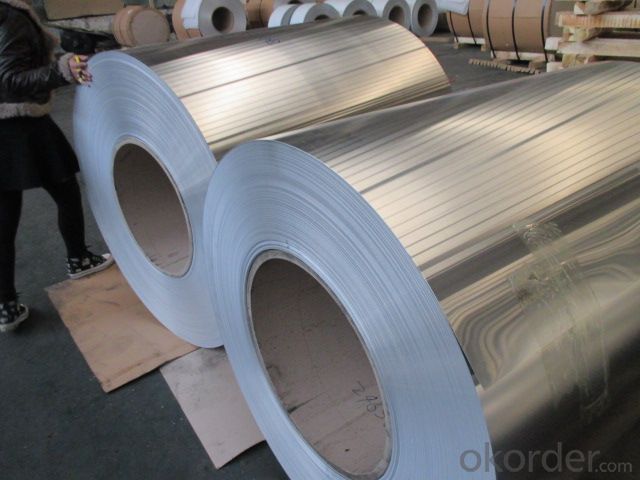
4. Aluminum Coils 3003 Specification
Alloy | AA3003 |
Temper | H14, H16, H18, H22, H24, H26, H32, O/F |
Thickness | 0.2mm -- 100mm |
Width | 30mm -- 1700mm |
Standard | GB/T 3880-2006,EN,ASTM,JIS |
5. FAQ of Aluminum Coils 3003
A.How to guarantee the quality?
Customers are welcome to our mill to visit and check the products. Besides, we can arrange a third party to test the quality.
B.When will you deliver the products?
The aluminum will be delivered within 35 days after receiving advanced payment or original L/C.
C. Now which countries do you export your goods?
Now we export to South East Asia,Africa, North America,South America ect.
- Q: Is it possible to use aluminum sheets in the manufacturing process of solar panels?
- <p>While aluminum sheets can be used in the construction of solar panels, they are not the primary material for making the solar cells themselves. Aluminum is typically used for the frame or backsheet to provide structural support and protection. The actual solar cells are made from materials like silicon, which is capable of converting sunlight into electricity. So, while aluminum plays a role in the assembly of solar panels, it is not used to create the photovoltaic cells that generate power.</p>
- Q: I want to make a part using molten aluminum with a hole through the middle and would like to use a steel rod to do this. Would the bar stick to the aluminum when it cools and not be able to be removed? If so is there so type of coating I can use so it can be removed?
- Aluminium and iron are pretty incompatible materials, they don't form an alloy I don't think, so it is unlikely they would stick. Also, both metals will get an oxide layer on the surface which should keep them separate. Try it! If the finished part does stick, try heating the aluminium then dip the steel rod in some ice water.
- Q: What characteristics distinguish aluminum sheets from other types of sheets?
- <p>Aluminum sheets are lightweight, corrosion-resistant, and have excellent thermal and electrical conductivity. They are commonly used in construction, automotive, and packaging industries. In contrast, other types of sheets, such as steel sheets, are heavier and stronger but less resistant to corrosion. Plastic sheets are lightweight and flexible but have lower strength and thermal conductivity. Copper sheets offer high thermal and electrical conductivity but are more expensive and less resistant to corrosion than aluminum. Each type of sheet has unique properties that make it suitable for specific applications.</p>
- Q: i need to know these things please....can aluminium withstand the forces of being in a cargo hold on a air freight, can it withstand extreme temps and to what extent an is it microwavable?? please help me
- No metals are microwavable, they will ruin any microwave oven by producing sparks. Even ceramic plates with a little metallic paint eg of silver will spark. Aluminium on its own has little strength but when mixed with small amounts of eg copper or manganese it aquires great strength while remaining light. In addition it has the advantage of being very resistant to oxidation and corrosion. It is certainly used extensively in aircraft construction. Due to being non toxic it used to make cans for beers, soft drinks (sodas) etc However it doesn't stand up well to high temperatures, its melting point is just at 660 degrees celsius, by comparison for iron it is 1540 and tungsten 3420.
- Q: Can aluminum sheets be welded?
- Yes, aluminum sheets can be welded. Aluminum is a versatile material that can be easily welded using various welding techniques such as Tungsten Inert Gas (TIG) welding, Metal Inert Gas (MIG) welding, and Gas Metal Arc Welding (GMAW). However, welding aluminum requires special considerations compared to other metals due to its unique properties. Aluminum has a low melting point and high thermal conductivity, which means that it requires a higher heat input and faster welding speed compared to other metals. Additionally, aluminum oxide can form quickly on the surface, making it necessary to remove this oxide layer before welding. Specialized welding techniques, such as using alternating current in TIG welding or using a spool gun in MIG welding, are often employed to ensure proper weld quality. Overall, with the right techniques and equipment, aluminum sheets can be successfully welded, making it a popular choice in various industries such as automotive, aerospace, and construction.
- Q: Is it possible to use aluminum sheets for creating roofing tiles?
- <p>Yes, you can use aluminum sheets to make roofing tiles. Aluminum is a popular material for roofing due to its durability, lightweight, and resistance to corrosion. It can be shaped into various styles and sizes to mimic traditional roofing materials like clay or slate. Aluminum roofing tiles are also known for their energy efficiency, as they reflect heat and can help reduce cooling costs. However, it's important to ensure that the aluminum sheets are of good quality and installed correctly to achieve the desired performance and longevity.</p>
- Q: This question asks for a list of the various types of profiles that can be made from aluminum sheets.
- <p>Aluminum sheet profiles come in a variety of types, suitable for different applications. Some common types include: 1. Flat Sheets: These are simple, flat aluminum sheets with no bends or curves. 2. Corrugated Sheets: These have a wavy or ridged pattern, providing strength while allowing flexibility. 3. Perforated Sheets: These have holes punched in a regular pattern, useful for ventilation or decorative purposes. 4. Embossed Sheets: These have a raised pattern on the surface, often used for aesthetic or functional reasons. 5. Extruded Profiles: These are complex shapes created by pushing aluminum through a die, suitable for structural applications. 6. Expanded Metal Sheets: These have a diamond-shaped pattern, providing strength and rigidity. 7. Checkered Plates: These have a raised, non-slip pattern, often used for flooring. Each type has its own specific uses and properties, and the choice depends on the requirements of the project.</p>
- Q: How do aluminum sheets perform in terms of weather resistance?
- Aluminum sheets are highly weather-resistant due to their natural oxide coating, which provides excellent corrosion resistance against various weather elements such as rain, snow, UV radiation, and temperature changes. This oxide layer acts as a protective barrier, preventing the metal from further oxidation and degradation. Consequently, aluminum sheets retain their structural integrity and appearance even when exposed to harsh weather conditions for extended periods.
- Q: Can aluminum sheets be used for insulation purposes?
- Aluminum sheets are capable of being used for insulation purposes. Due to its high thermal conductivity, aluminum serves as an efficient heat conductor. Nevertheless, in order to enhance insulation efficacy, aluminum sheets are typically combined with other substances. One common example is aluminum foil insulation, which involves combining aluminum foil with materials like foam or fiberglass to establish a heat transfer barrier. The reflective nature of aluminum further aids in deflecting radiant heat, thereby amplifying its insulation capabilities. In summary, although aluminum sheets alone may not offer ample insulation, they can be effectively utilized in conjunction with other materials to construct insulation systems suitable for diverse applications.
- Q: Are aluminum sheets suitable for chemical storage tanks?
- Depending on the specific requirements of the chemical being stored, aluminum sheets may be a suitable option for chemical storage tanks. Aluminum is renowned for its exceptional resistance to corrosion, making it well-suited for the storage of numerous chemicals. It develops a protective oxide layer that effectively prevents further corrosion, even in harsh environments. Nevertheless, it is vital to take into account the compatibility between the chemical and aluminum. Some chemicals, such as strong acids or bases, can react with aluminum, leading to corrosion or other undesirable reactions. In such instances, alternative materials like stainless steel or fiberglass-reinforced plastic (FRP) might be more appropriate. Furthermore, careful consideration should be given to the thickness and grade of the aluminum sheets, depending on the specific chemical being stored and the intended use of the tank. For highly corrosive or hazardous chemicals, thicker sheets may be necessary, while thinner sheets may suffice for less aggressive substances. In conclusion, aluminum sheets can be a viable choice for chemical storage tanks, provided that careful evaluation of chemical compatibility is conducted and the appropriate thickness and grade of aluminum are selected to ensure safe and reliable storage.
Send your message to us
Aluminum Sheets for Roofing - Aluminum Coils 3003 for Insulation and Cladding of Oil & Gas Pipes
- Loading Port:
- Shanghai
- Payment Terms:
- TT OR LC
- Min Order Qty:
- 25 m.t.
- Supply Capability:
- 20000 m.t./month
OKorder Service Pledge
OKorder Financial Service
Similar products
Hot products
Hot Searches
Related keywords
